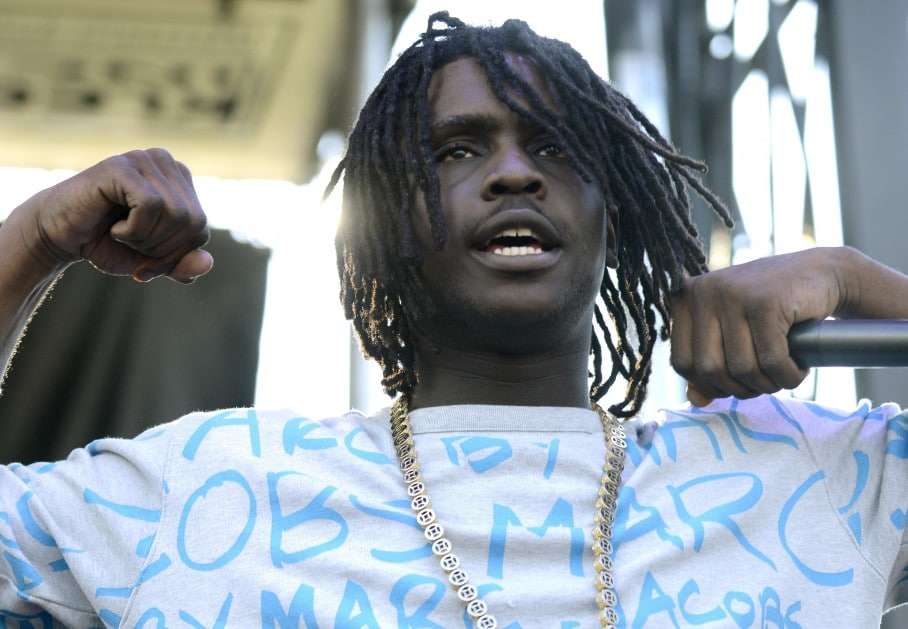The Volokh Conspiracy
Mostly law professors | Sometimes contrarian | Often libertarian | Always independent
Police shut down concert because of rapper Chief Keef's hologram appearance -- First Amendment violation?

The Chicago Tribune (Alex Parker & Michelle L. Quinn) reports:
Rapper Chief Keef appeared - via hologram - at a Hammond [hip-hop] music festival [Craze Fest] Saturday night, but his performance was shut down by police within minutes.
The event seems to be at the open-air Wolf Lake Pavilion in a Hammond, Ind., city park, which is apparently generally open for concerts and other events. The government may impose reasonable content-neutral restrictions on speech in such venues, such as sound level restrictions, and may charge money for the use of the venues. But the government may not restrict speech because of its viewpoint, or the viewpoint that the speakers had expressed elsewhere, which seems to have happened here:
Hammond police Cmdr. Pat Vicari said the promoters were warned the concert would be shut down if Chief Keef performed.
"We spoke to the promoter several times, and they assured us (Chief Keef) would not be performing," Vicari said. "Later, an officer working the show realized it was being streamed on one of the hip-hop sites, and promoters were warned again they would be shut down."
The disapproval of Chief Keef's performing appears to be, according to the New York Times (Joe Coscarelli),
"I know nothing about Chief Keef," [Hammond] Mayor [Thomas M.] McDermott [Jr.], 46, said. "All I'd heard was he has a lot of songs about gangs and shooting people - a history that's anti-cop, pro-gang and pro-drug use. He's been basically outlawed in Chicago, and we're not going to let you circumvent Mayor Emanuel by going next door." (The Chicago mayor's office did not immediately respond to a request for comment.)
Nor does any change in the playlist justify the police shutting down the event, when the objection to the change was the inclusion of someone whose viewpoint the city disapproves of. And while Mayor Rahm Emanuel's office objected to a similar event in Chicago - which a private venue called off after these objections - on the grounds that Keef's performance "posed a significant public safety risk" (as well as Keef being "an unacceptable role model" and his music "promot[ing] violence"), such a general safety worry can't justify preemptively shutting down the event, either. See, e.g., Terminiello v. City of Chicago (1949), where speech was found to be constitutionally protected despite a much more concrete danger of violence. Finally, it appears that Chief Keef appeared by hologram because there was a warrant for his arrest, perhaps for missing a DUI court hearing or for failing to appear in a child support case; but while that would have justified the police arresting him if he appeared in person (since there would be a viewpoint-neutral justification for that, namely arresting someone for whom there is a warrant), that can't justify the police stopping the holographic projection.
For those who are thinking, "what about Walker v. Sons of Confederate Veterans"?, note that the Court in Walker recognized that parks continue to be traditional public fora when it comes to events (as opposed to permanent monuments), and not places for the government to express its own message. In such places, viewpoint discrimination by the government continues to be forbidden. Indeed, as Walker noted, it continues to be forbidden even in nonpublic fora such as advertising programs on city buses.
Unless I'm missing something here, then, this is a pretty clear First Amendment violation on the part of the City of Hammond. And it seems to me that, in America, performances by controversial singers can't be "basically outlawed," even "in Chicago."
Thanks to reader David Welker for the pointer.
UPDATE: Some comments suggested that the rapper's speech might be punishable if it advocates the commission of crime. But the Supreme Court held, in Brandenburg v. Ohio (1969) and Hess v. Indiana (1973), that even advocacy of crime is constitutionally protected unless it is intended to and likely to cause imminent criminal conduct, with "imminent" meaning in the next few hours or maybe at most days, rather than at some unspecified time in the future. (That's the so-called "incitement" exception.) So unless Chief Keef was urging people to set fire to the stage, or shoot any police officers that might be standing nearby guarding the event - and I have absolutely no reason to think Keef was indeed doing that - his speech was not punishable incitement.


Show Comments (0)